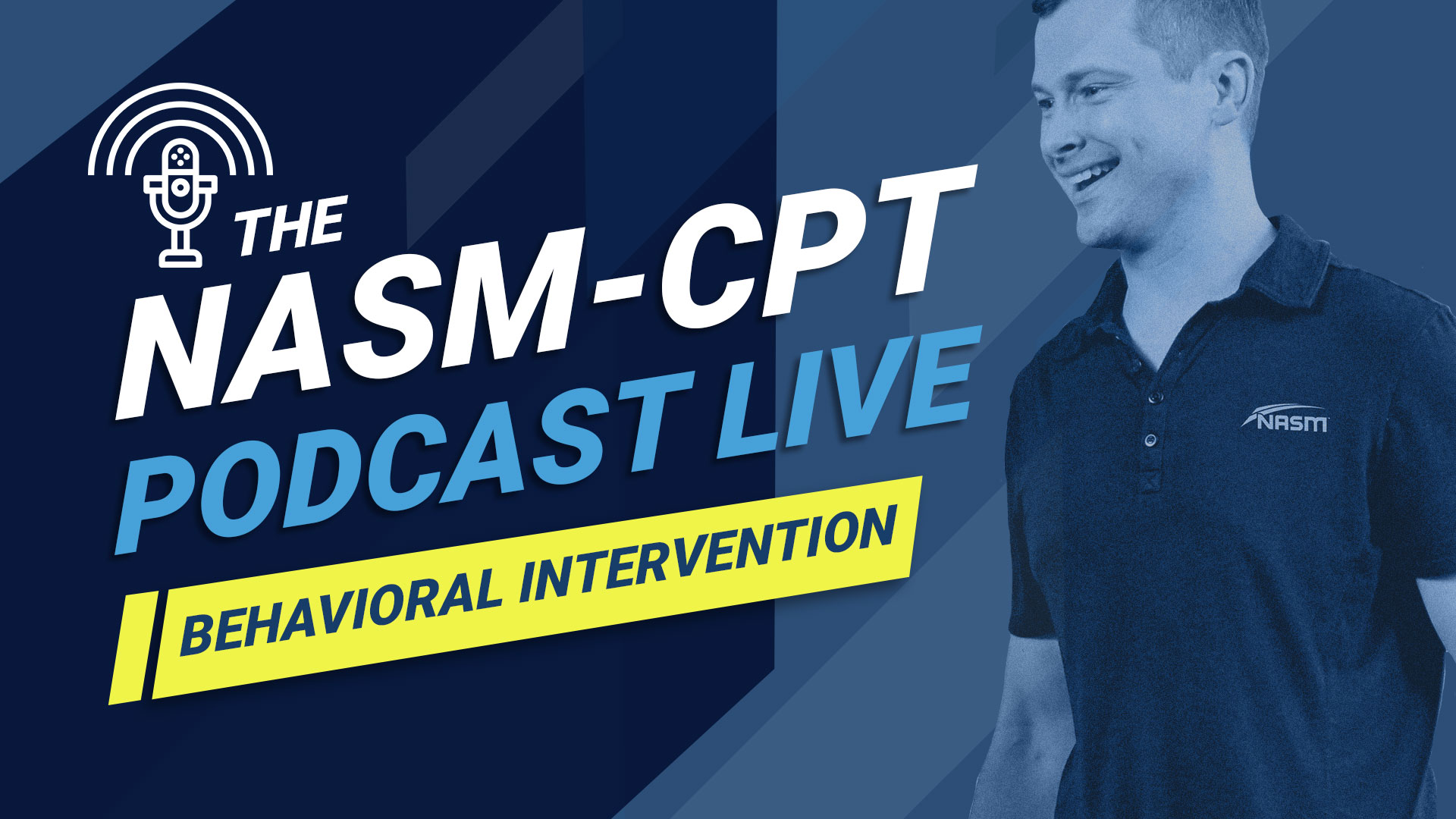In this episode, host Rick Richey talks with Antoinette Schoenthaler from NYU about behavioral intervention - and how it relates to adherence and compliance with clients. Within, they both peel apart the proverbial (behavioral) onion and discuss why clients stick to certain behaviors, eating habits, and so forth, and what trainers can do to readily adapt and understand the behavioral motivations of clients.
Adherence and compliance - as discussed in this episode - are not only huge components of long term fitness success for your clients but are also a big part of successful behavioral change strategies.
Here are a few takeaways from the episode:
- Adherence means showing up and exercising. Compliance is the actual program that the personal trainer writes out. So both are inextricably linked for the longterm fitness of your clients.
- There's no magic bullet for motivation. Antoinette says that the most successful adherence has to do with clients finding their overall exercise and nutritional motivations important enough. If a client doesn't find their exercise and health goals important they are less likely to stick to them.
- Writing down goals versus just saying them aloud helps ingrain habits on a deeper level. It will also help lay the groundwork for a more robust value system that will keep your clients on track with their fitness goals.
- SMART goals are effective for forming positive habits. These are Specific, Measurable, Achievable, Relevant, and Timely
- Intrinsic motivation is motivation which is derived from within ourselves, our value system, and long term goals, and extrinsic motivation comes from external sources i.e. people telling us what to do.
For more information on this topic, be sure to follow this link for the podcast. Or read the episode teaser below and follow the provided links for additional content.
Antoinette Schoenthaler has a Doctorate in Public Health Education, is an Associate Professor of Population Health and Medicine at NYU School of Medicine, and her research centers around adherence behavior specifically.
Episode excerpt on Behavioral Intervention, compliance, and adherence
One aspect of this episode, which ties into the larger framework of the talk, is attribution theory and how it relates to client motivation.
"Do what you can and not what you can't!"
Rick provides examples of shifting the mindsets of clients by identifiying the blocking forces that prevent them from regular exercise. And then reattributing them to the things they can change and have control over.
Given that there are external forces out of clients' control, it's important to validate the instances they cannot change and separate those from the areas they actually can control.
And as Antoinette says, it's of tantamount importance for clients to get concrete with how they are spending their time. And also, to assess what their values are.
One of the most important motivating forces for exercising is values. If it's important to a client, they will more likely than not find time to invest for their health.
additional Resources to check out!
For a great overview of habit formation and behavior change - as it relates to nutrition - be sure to visit this blog post.
There's also a great video series by the authors that is worth checking out!


-1.png?width=723&name=MicrosoftTeams-image%20(4)-1.png)













